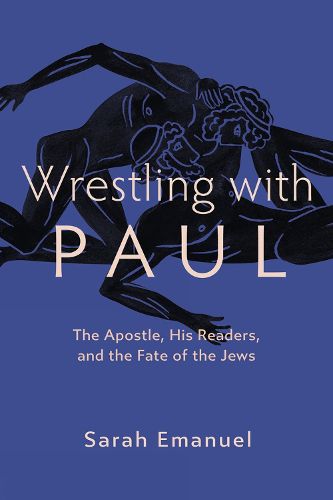Readings Newsletter
Become a Readings Member to make your shopping experience even easier.
Sign in or sign up for free!
You’re not far away from qualifying for FREE standard shipping within Australia
You’ve qualified for FREE standard shipping within Australia
The cart is loading…






In this book, Sarah Emanuel, a Jewish scholar of the New Testament, argues that Paul was not a universalist. Instead, Emanuel shows that, stemming from his Hellenistic Jewish worldview, Paul understood Jews as needing to maintain the law in Christ and gentiles as needing to abstain from the law in Christ. Both groups, in other words, needed to maintain particular ethnic difference in their Christ-following orientations lest they be "left behind" from Paul's imagined end of days.
Emanuel also argues that the way in which Paul understood these groups was through ethno-nationalistic and hierarchical means. By "ethno-nationalistic," she means that Paul viewed the end of days as a new, Israel-centric nation requiring particular polyethnic-cultural affiliation: Jews for Christ and gentiles for Christ. By "hierarchical," she means that Paul valued Jews for Christ over gentiles for Christ (and also males over females and free persons over enslaved persons); after all, Paul's end of days was itself Israel-centered (i.e., Jewish-centered) with the God of Israel (i.e., the Jewish God) at the helm.
Finally, none of these beliefs made Paul exceptional in his Judaism. It made him average in his Judaism. Wrestling with Paul shows that scholars in a post-Holocaust world have often sanitized this ethnocentric exclusivism so as to make Paul ahistorically "good" for modern Jews and Judaism. It also shows that readers of Paul have--for millenia--made sense of him in light of contemporaneous attitudes toward Jews.
$9.00 standard shipping within Australia
FREE standard shipping within Australia for orders over $100.00
Express & International shipping calculated at checkout
In this book, Sarah Emanuel, a Jewish scholar of the New Testament, argues that Paul was not a universalist. Instead, Emanuel shows that, stemming from his Hellenistic Jewish worldview, Paul understood Jews as needing to maintain the law in Christ and gentiles as needing to abstain from the law in Christ. Both groups, in other words, needed to maintain particular ethnic difference in their Christ-following orientations lest they be "left behind" from Paul's imagined end of days.
Emanuel also argues that the way in which Paul understood these groups was through ethno-nationalistic and hierarchical means. By "ethno-nationalistic," she means that Paul viewed the end of days as a new, Israel-centric nation requiring particular polyethnic-cultural affiliation: Jews for Christ and gentiles for Christ. By "hierarchical," she means that Paul valued Jews for Christ over gentiles for Christ (and also males over females and free persons over enslaved persons); after all, Paul's end of days was itself Israel-centered (i.e., Jewish-centered) with the God of Israel (i.e., the Jewish God) at the helm.
Finally, none of these beliefs made Paul exceptional in his Judaism. It made him average in his Judaism. Wrestling with Paul shows that scholars in a post-Holocaust world have often sanitized this ethnocentric exclusivism so as to make Paul ahistorically "good" for modern Jews and Judaism. It also shows that readers of Paul have--for millenia--made sense of him in light of contemporaneous attitudes toward Jews.